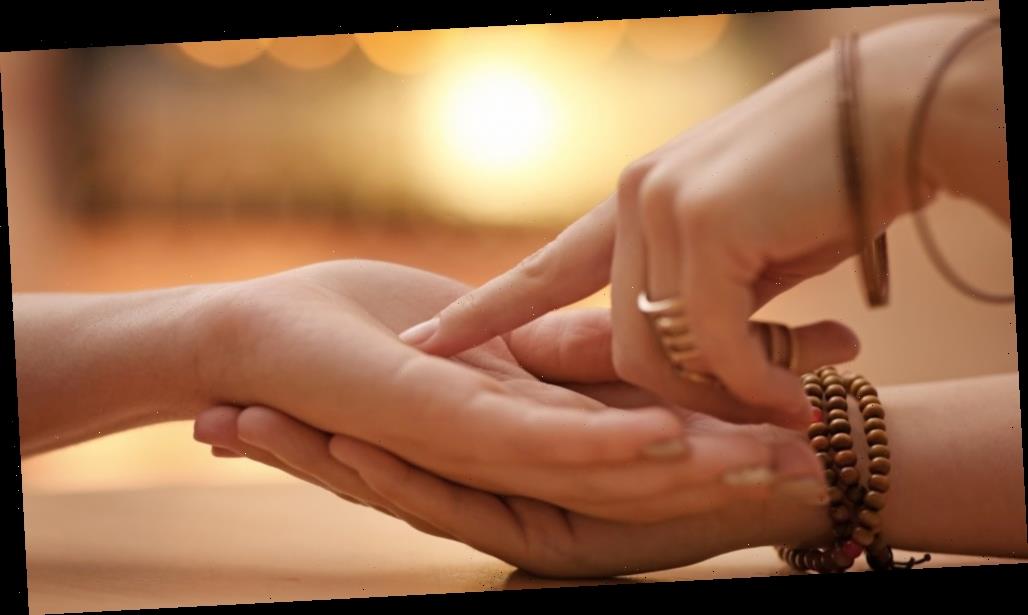
Palm reading, also known as chiromancy, has been used to predict human destiny for thousands of years (via Medium.com), but is there any actual truth to it? Science says no — there is absolutely no empirical evidence that shows predictions made using the lines on a person’s palm have any relation to actual events that subsequently unfold in that person’s life.
Palm readers and their clients, however, have a wealth of anecdotal evidence by which they swear up and down that palm readings really do come true, and/or provide great insight into areas that the palm reader should never have been able to know about.
How could this be?
Well, one theory, put forth by Australian Skeptics is that palmistry, like any other kind of divination (sun signs, moon signs, numerology, tarot reading), is based in large part on “cold reading.” In other words, the reader is able to make accurate predictions by close observation of the client as well as by cleverly fishing for information, such as, “I sense that you are worried about something… perhaps this involves money?” Who, after all, does not have worries that involve money? If the client agrees, maybe he or she will then spill a little more info, and the palmist can find a way to expand upon this information to make it seem like something just pulled out of the ether.
Palm lines do have their meaning, but it's not what you think

While the lines on your palm really cannot tell you much about when you’ll get married, whether you should look for a new job, or if you should bet on Lucky Lucy in the 7th at Pimlico, hands can actually tell scientists a little bit about someone’s early development, according to The Atlantic. Both fetal alcohol syndrome and Down’s syndrome often leave telltale marks on the palm, and fingerprint patterns also have a story to tell. Certain fingerprint types may indicate a higher possibility of schizophrenia or adult-onset diabetes.
One final note — although this is not linked to the actual patterns of the loops and whorls, people who consume foods containing a lot of salt and preservatives (potato chips, anyone?) tend to leave fingerprints that are sweatier and more corrosive, and thus easier for police to read than prints left by clean-eating, healthy lawbreakers. Word to the wise: if you’re a junk food junkie, better stay on the right side of the law. Otherwise, you won’t need a palm reader to predict that your future might involve an extended stay in a gated community in which you’ll likely meet more than your share of mysterious strangers.
Source: Read Full Article
